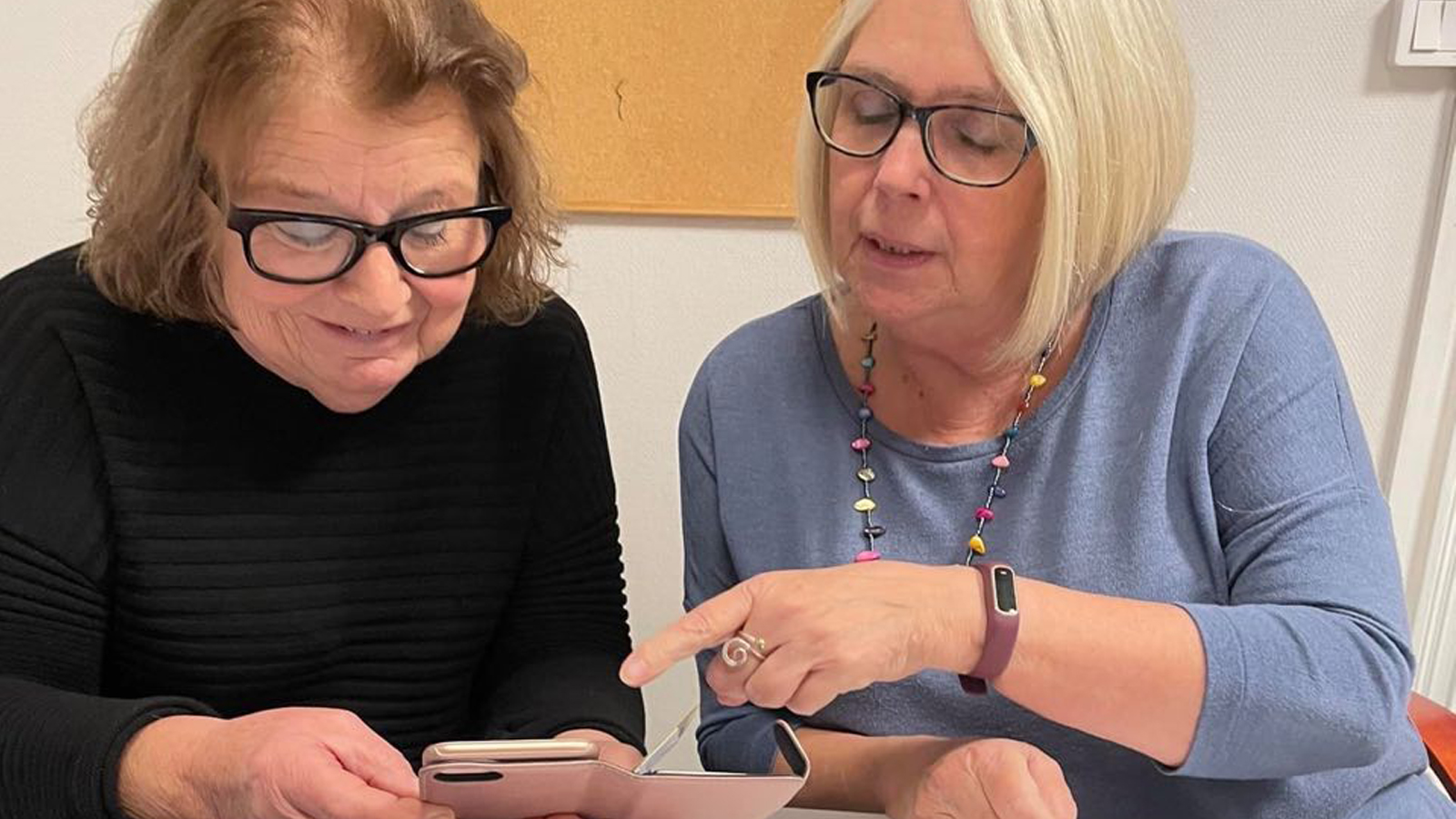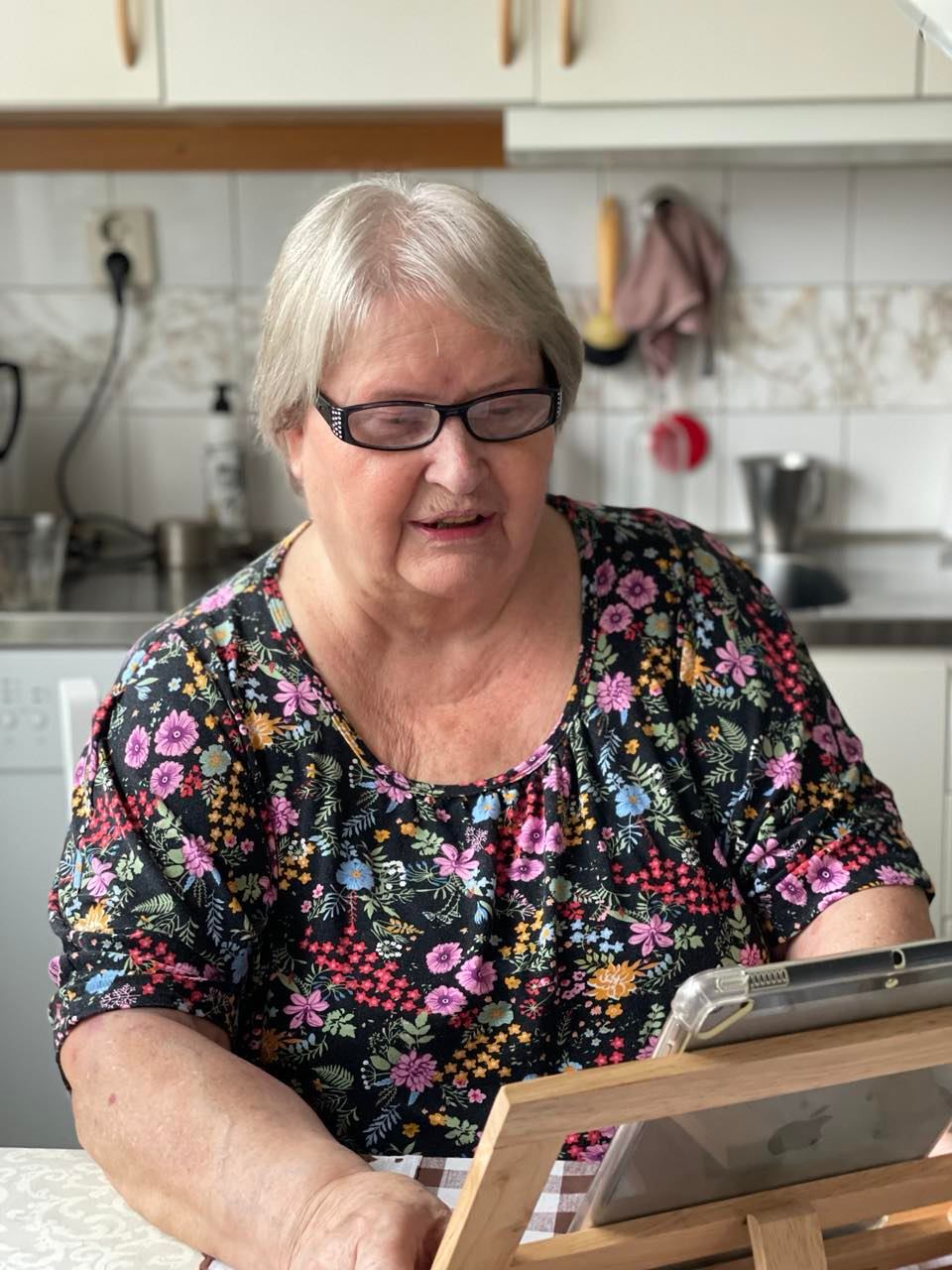Bringing seniors online and into their communities

Digital technology is a powerful resource for connecting seniors to their communities—whether they use it to manage their finances, shop, access information, or stay in touch with friends and family. Yet seniors are the most likely to face digital exclusion through lack of skills or access to technology. Digivän.senior, a program of PRO Samorganisation Gävle and the municipality of Gävle, has helped lift seniors out of exclusion in the most inclusive way possible—by matching them with a “digital friend” from the community who can meet them where they are and pass on their digital knowledge.
Building connection through digital mentorship
The Digivän program came to life during the pandemic, when civic leaders grew concerned about the isolation many seniors experienced due to their lack of digital skills. “During the pandemic, we saw how difficult it was for many elderly people to book vaccinations via the internet, that they couldn’t shop for food in a simple way, or other problems that arose in everyday life,” recalls Susanne Falk of PRO Co-Organization Gävle. In response, her organization worked with the municipality of Gävle, the City Library, and funding partners Microsoft and Sparbankstiftelsen (Savings Bank Foundation) to match seniors with skilled digital mentors.
Digivän.senior helps adults 65 and older access digital technology—hardware, software, and other equipment—and build the skills to use it with the help of their tech-savvy ‘Digifriend.’ The digital friends meet seniors where they are, often in their homes, and work with them to answer questions and help them discover how technology fits into their daily lives. This personal connection at home makes digital learning accessible to all. One participant reflects, “[the fact that] the volunteer came home to all of us was wonderful, [so we could] get help in peace and on one’s own level.”
Of the 55 seniors who participated in the Digivän project, 35 were entirely new users of the internet. Leena Jansson, almost 75 years old, describes how much her Digifriend helped her: “Before, I had neither a tablet nor a computer. I couldn’t send messages with the phone or pay bills digitally.” Through the program, she got access to a tablet and the internet. “A friendly girl came and taught me, step by step, how to order food via the internet, how to find older [TV] series…and how to download BankID to pay bills digitally.” BankID affords access to over 6,000 web services, including banking, government services, and medical records.
Digital access has opened a new world for Jansson. “I have much more fun [things] to do than just walking around here at home and watering the flowers. Now I have also found several relatives in both Finland and the USA on the internet whom I have not met for many years. My sister in Finland screamed out on the phone when I called her and she could see me on the screen. ‘The best thing you’ve done,’ she said.”
Together with their digital friends, seniors gain self-confidence, independence, and awareness of the digital resources available to them. In an interview at a Gävle senior center, Digivän.senior participants reported, “becoming more independent and not so afraid of making mistakes. We dare now to go out into the internet. The more we have learned, the more we see the need to get even more knowledge.” Digifriend Ruzanna Larsson, 29, observed of her pensioner-friend, “I really notice how her self-confidence has grown during this time. She has become more independent.” This is the mission of the Digivän.senior program—to help people become more independent and more able to participate in their community. The project is part of a broader initiative in Gävle to improve the quality of life for seniors, in line with the city’s distinction as a World Health Organization “elderly-friendly municipality.” Microsoft, which operates datacenter facilities in Gävle, provided funding for the project through its Community Empowerment Fund.
Living a full life, online (and off)
“Digifriends” help seniors master the full spectrum of digital activities, from entertainment to crucial life tasks. Participants enjoyed sending photos and messages to family and friends, finding old favorite TV shows and movies to watch, reading magazines or the newspaper, and listening to music. One participant mentioned online maps as a favorite discovery. Useful activities included paying bills and banking, accessing public services, shopping or ordering food, managing medical care, and sending emails. Digital friends helped seniors download the digital certificates they need to access banking and public services. They showed them how to access the national healthcare system’s digital advice portal (1177.se), where patients can review their online medical records, check medicine instructions, and book medical appointments, including Covid vaccinations. Like Leena Jansson, many seniors found the most meaningful digital skill was learning to connect with friends and family who live in other cities or even other countries. For Digifriends, a side benefit to sharing digital skills was the opportunity to connect across generations; Larsson, the 29-year-old mentor, praised the program as an activity “where people of all ages can meet and socialize across generational boundaries in a meaningful way.”
Using digital technology to connect—with loved ones, with the community, or with services—can have a profound impact on an elderly person’s quality of life. This is the community most likely to be isolated at home due to health issues. For homebound seniors, digital technology can be a lifeline to the outside world. Technology is an important resource for all, but the seniors interviewed shared an important reminder for the tech-savvy: “We worry that younger people forget to get in touch with us on the phone—text messages are so simple, but we the older ones want to hear the voices of our beloved ones.”



